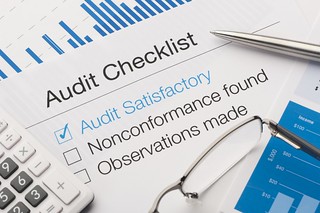Any type of management system requires a regular audit. How often do you audit your KM management system?
If you look at the ISO standards for management systems, all of them include a clause about audit.
The quality systems standard ISO9001:2015, for example, contains the following clauses:
- 9.2.1 the organization shall conduct internal audits at planned intervals to provide information on whether the quality management system
- a) conforms to
- 1) the organizations own requirements for a quality management system,
- 2) the requirements of this International Standard
- b) is effectively implemented and maintained.
- 9.2.2 the organization shall plan, establish and maintain an audit program including the frequency, methods, responsibilities, planning requirements and reporting ... (the text continues for several sub-bullets).
In the absence of a completed ISO standard for Knowledge Management (due out 2017 or 2018), we need to look at these other management system standards to see what good practice looks like, and ISO good practice for every management system includes regular audit and review.
KM Framework audits
In a recent post, I suggested that there are two types of KM audits; the scan and the assessment. I said the first was like counting the apples in your orchard, the second was like reviewing your farming methods.The assessment is therefore closest to the type of audit mentioned in the ISO standard above, and really should be conducted on a regular basis.
However the audit is also valuable, so long as you also run it regularly. It doesnt idtenfity what you are doing well or badly in KM terms, but it tells you how well managed your knowledge is.
Our favoured approach to run the audit on an annual basis. It works like this
- The KM team works with the knowledge owner, or process owner, to audit their own knowledge area.
- Based on the results of the audit, they identify actions for the following year
- The next year, the audit should show improvement
- The KM team can use the audit results, and the change in results over the year, to construct a KM dashboard for reporting to senior management. If KM is working, all audit scores should show an increase over the previous year.
Contact us if you want help auditing your KM Framework.





No comments:
Post a Comment